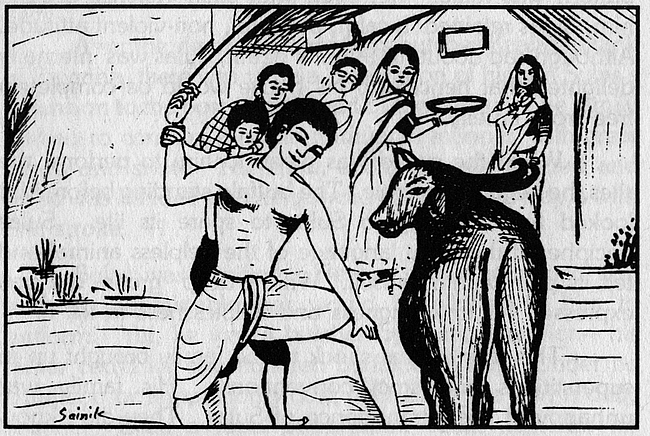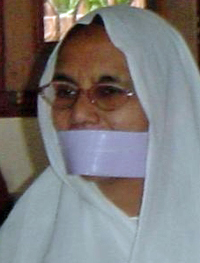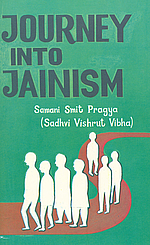After the demise of notorious butcher Kaalasaukarik of Rajgriha, there was to be a celebration of his son Sulas's ascension to the post of 'the head of the family'. The family wished to conduct it in the traditional manner, with great pomp and show. Therefore, a buffalo was ordered and Sulas was handed a shining sword and asked to slay it with one stroke.
Sulas was terrified. He had never imagined that such an abominable task would be allotted to him to perform. Yet, he was a butcher by family tradition- his father could kill five hundred buffaloes a day. Under no condition or temptation would his father give up his daily routine. Even a royal punishment could not alter his tendency for killing.
Once, Shrenik, the king of Magadha, forbade the killing of buffaloes for one day. Kaalsaukarrik's disobedience of the order enraged the king, who then forced him to descend into a deep pit (a dry well). Kaalsaukarik, who regarded the killing of buffaloes as a duty in conformity with his family tradition, was perplexed at this attempt to annihilate it.
After a deep reflection over the problem, Kaalsaukarik at last found an outlet for the raging fire of violence that was burning in him. He collected the mud in the well and shaped it into buffaloes and thus fulfilled his duty by killing those buffaloes.
Sulas was disheartened at this violent tendency of his father, but any attempt to change his father's behavioral pattern was futile. Yet, even with such violence around him, Sulas retained a calm, peaceful, non-violent attitude. Although sad about his father's death, Sulas was internally delighted that henceforth his house would be completely free from cruelty.
When the sword was given to him to perform the rites, he began to tremble. The buffalo standing before him looked as if praying to Sulas to spare its life. Sulas deciphered the silent language of the helpless animal and felt its pain within himself. With a deep groan, the boy expressed his unwillingness and helplessness to kill it.
This was a great shock to the family brought up in superstitions and strict conventions. His family was unhappy at this intransigence of Sulas. They did't know what to do. On one hand there was the firm, noble, nonviolent determination of Sulas, and on the other hand there was the brutal family tradition.
Some time passed whilst Sulas was as adamant as ever. The family searched their petty brains for an answer. At last it was decided that Sulas should inflict the first blow on the buffalo simply to observe the tradition and the remaining formalities would be taken up by other people.
Sulas now stiffened his trembling hands. He tightened his grip upon the sword, mustered all the strength he could, and swung the weapon without further deliberation. The blow, was not on the buffalo, but on his own legs. As the blood gushed forth like an angry stream, the members of his family were filled with great surprise, fear and perplexity.

The blow was not on the buffalo, but on his own legs.
Getting his chance to speak on the matter at last, Sulas exclaimed, "Fellow creatures of the earth! I have a word for you! Please listen to me! Even as we like to protect our lives, this buffalo seeks to save his. We care about ourselves but not about those other creatures who have as much right to live as we ourselves have! This I cannot understand. Why do we not treat them with the respect they deserve? If our positions were reversed, we would not stand to be treated thus!"
For our own spiritual good, we must realize the relative equality among all living beings and must not treat any as inferior, because they do, after all, love as we do, suffer as we do, and have likes and dislikes as we do. Our actions must be the product of knowledge, not ignorance! We must exercise self-control and, in the true Jain way, not kill or hurt any creature through our action, speech, or thought.
 Sadhvi Vishrut Vibha
Sadhvi Vishrut Vibha
